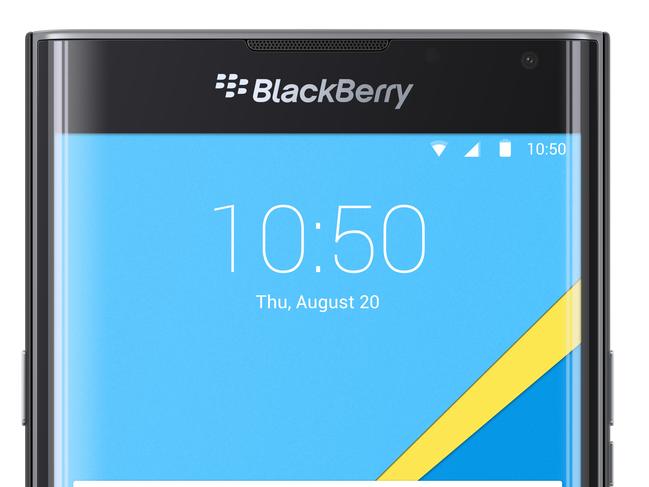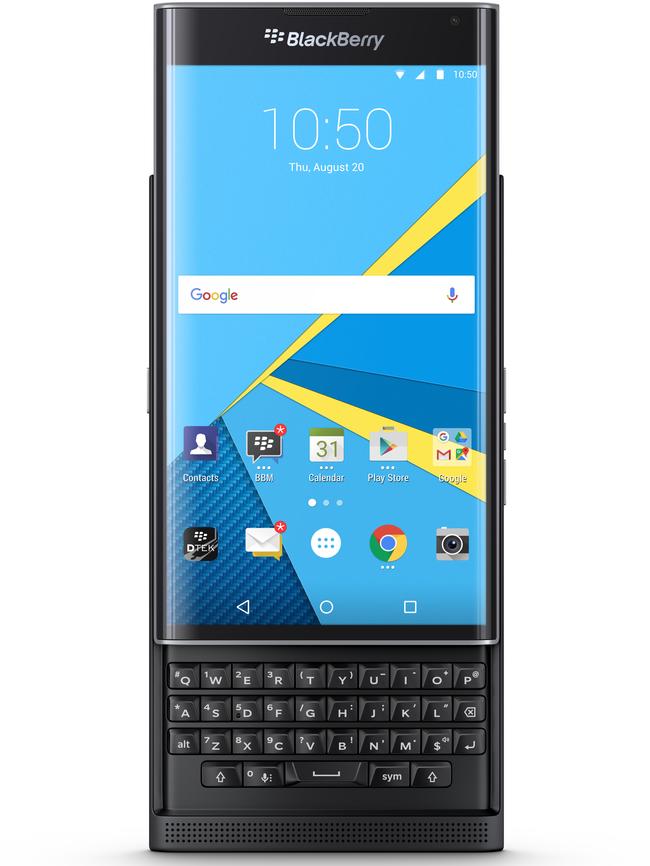BlackBerry catches up with Android with new smartphone named Priv
BlackBerry’s first Android phone sends all the right signals, and has superior encryption. But is it too little, too late?

BlackBerry is fighting for its life as a handset maker with Priv, its first Android phone. It comes years after people widely urged it to take the Android route.
Many will say the ship has sailed, that BlackBerry missed the chance to snare users from Android and Apple years ago, before the smartphone market had matured. What was once the wet concrete of users sliding between phone platforms is now a market set hard in stone.
BlackBerry is no longer a dedicated handset maker. Its business these days focuses on across-platform enterprise security, supporting iOS, Android, Windows and its BlackBerry OS devices. Handsets take more an ancillary role, at least in the developed world.
In my view, BlackBerry’s ongoing role as a handset maker hinges on it delivering a level of security desperately needed in this age of hacking and metadata harvesting. If it achieves that, it has a chance to succeed with Priv. Chief executive John Chen, however, is demanding profitability for its phone production to survive.
Priv certainly sends the right signals. It may not entice iOS users who for years have invested heavily in iTunes apps, music and media. But it may snare Android users who enjoy Google’s ecosystem of 1.6 million apps while seeing privacy and security as priority.
Priv is BlackBerry’s most attractive smartphone to date, with a sleekly curved 5.43-inch quad HD screen that’s a whisker smaller than iPhone 6s Plus. At 540 pixels per inch resolution, it’s one of the best phone displays on the market.
In looks it is reminiscent of the Samsung Galaxy Edge, with curves at the edges of the display. The edge lights up with system messages such as the time before the phone is fully charged.
The keyboard will appeal to those frustrated two-fingered typists still out there, as there are few alternatives. It’s probably not for new players. But it is backed by an onscreen keyboard that cleverly predicts words as they are typed. Indeed, BlackBerry could have produced a Priv without a keyboard.

That’s because the telling factor for Blackberry’s handset future is security. I asked BlackBerry chief security officer David Kleidermacher to detail Priv's security features, and whether they improved Android’s standard offering. It’s a technical discussion I’ll try to tell simply.
Kleidermacher said that when it came to security, BlackBerry added “three levels of special sauce”. The first is a secure cryptographic or root key, which is like the secret master key to the phone. It is used to ensure the integrity of the phone’s firmware, and he says BlackBerry has made it impossible for illicit users to access it. The key is used, among other things, to encrypt the phone’s storage.
The firmware validated by that key in turn monitors the integrity of Android’s operating system, starting from when you switch on the phone. Corrective action can be taken if there is evidence of compromised security.
The third level is the “massive improvements” that BlackBerry has made to the Android kernel, the hub of its operating system. This secures the operating system beyond what Android offers by default, Kleidermacher says.
BlackBerry includes an app called Dtek that monitors other apps and the data they access. It’s a font of information. You get a rundown on unusual activity and it recommends changes that users can make to data security.
I tested whether I could add my work credentials to Priv without hitches. I could add my work Google email to the Gmail app but not to BlackBerry Hub. In my case, Priv was managed by mobile device management firm AirWatch. But the same issue could apply to other mobile security vendors.
Kleidermacher says BlackBerry will make sure these mobile device management systems work seamlessly with Priv. That’s essential for Priv as a bring-your-own device for work.
We also discussed whether BlackBerry users could avoid sharing data with Google if they felt its ecosphere compromised privacy. Kleidermacher cited BlackBerry’s own apps, including BBM and BBM Meetings, as a way through this.
Priv doesn’t have fingerprint biometric identification, now standard with the latest Android Nexus phones. It makes a huge difference if you don’t have to enter a password or PIN and it’s something BlackBerry needs to consider.
In all, Priv is an attractive Android phone by a company with a long track record in security management. But BlackBerry faces a tough road ahead getting market traction. When your back’s against the wall, you come out fighting and BlackBerry is giving its best shot with Priv.
Local pricing is not set, but in the US the phone sells for $US699 ($987), so expect $1000 or more. Priv is expected to sell in Australia sometime next year.


